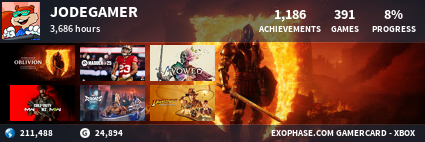My highlights from the EC (European Commission) decision (256 pages).
This is PART 2, you can check PART 1 here. The rest tomorrow.
MS/ABK will be constrained by Embracer and Tencent in the market for development and publishing of AAA role playing PC video games (page 50)
First, while both Parties are active in development and publishing of AAA role playing PC video games in the EEA, the Commission observes that the increment brought about by Microsoft in this market is limited: [0-5]% by revenue on PC in 2022.
Second, in the market for development and publishing of AAA role playing PC video games, the combined entity will remain constrained by two large developers and publishers— Embracer/Perfect World (Fantasy Westward series, Eve Online) and Tencent (4rcheage, Path of Exile), who significantly expanded their share of the market from 2020 to 2022. Embracer/Perfect World more than doubled its market share by revenue from [10-20]% in 2020 to [30-40]% in 2022 in the EEA, and Tencent grew its market share by revenue from [10-20]% in 2020 to [10-20]% in 2022 in the EEA. In fact, Embracer/Perfect World accounts for a similar share of the market as the combined entity in 2022 ([30-40]%, compared to [30-40]% of the combined entity by revenue) in the EEA.
Finally, the Commission notes that it has not received any complaints from the respondents to the market investigation regarding horizontal non-coordinated effects on the horizontally affected segments of the market for development and publishing of AAA role playing video games in the EEA.
MS/ABK will be constrained by Embracer, EA, Sony, Bandai Namco or Ubisoft in the market for development and publishing of AAA racing and flying console and PC video games (page 51)
Third, the Parties will remain competitive constrained by developers and publishers with significant share of the market, irrespective of the market segmentation. On PC, Embracer/Perfect World (Monster Energy Super Cross, Moto GP, Hot Wheels Unleashed) remains the market leader with more than [40-50]% market share by revenue in 2022 worldwide. On console, Embracer/Perfect World comes close to the combined entity in the share by revenue ([10-20]% compared to the combined entity's [20-30]% in 2022) worldwide, while EA (F1 2021, Need for Speed, Grid) also has a significant market share ([10-20]% in 2022) worldwide. In addition, a trail of large publishers will continue to provide meaningful competition in development and publishing of AAA racing and flying PC and console video games worldwide, such as Sony (Gran Turismo), Digital Bros (Assetto Corsa), Bandai Namco (Ace Combat) and Ubisoft (The Crew).
MS/ABK will be constrained by Epic, EA, Nintendo, Take Two or Ubisoft in the market for development and publishing of AAA action and adventure console and PC video games (page 53)
Third, the market for development and publishing of AAA action and adventure console video games hosts a large number of credible competitors. All large developers and publishers are active in this market on the worldwide level, such as Epic Games ([5-10]% by revenue in 2022); Ubisoft ([5-10]% by revenue in 2022); Nintendo ([5-10]% by revenue in 2022); Take Two ([5-10]% by revenue in 2022) and EA ([5-10]% by revenue in 2022). The competitive landscape is similar in the wider market including both console and PC video games of the action and adventure genre worldwide.
MS/ABK will be constrained by Epic, EA or Ubisoft in the market for development and publishing of AAA Shooter (including battle royale) console and PC video games (pages 55-56)
In the worldwide market for development and publishing of AAA shooter console video games, the combined entity's market share exceeds 20% by revenue in 2022 worldwide ([30-40]%). Therefore, the Commission has assessed whether the Transaction gives rise to competition concerns with regard to horizontal noncoordinated effects in the worldwide market for the distribution of AAA shooter console video games.
The Transaction gives rise to a horizontal overlap in this market segment also on the EEA level. In this respect, however, the Parties' activities do not give rise to an affected market because the combined entity's EEA-wide market share remains below 20% by revenue in 2022 ([10-20]%). Therefore, by reason of the Parties' limited market share and the unlikelihood of a significant impediment to competition arising in the narrower plausible EEA-wide market, the Commission finds it unlikely that the Transaction is liable to impede effective competition in the EEA-wide market development and publishing of console shooter video games.
Second, large developers and publishers also have a presence on the market and provide meaningful competition to the merged entity worldwide: EA (Bartlefield, Apex Legends, Titanfall, Star Wars Battlefront, and others) with [20-30]% share by revenue worldwide, Epic Games (Fortnite) with [10-20]% share by revenue worldwide and Ubisoft (Tom Clancy) with [5-10]% share by revenue worldwide.
MS considers that Sony has a market position in consoles of "super-dominance" (page 61)
The Notifying Party submits that, should the merged entity engage in a customer foreclosure strategy against third-party developers and publishers of console games, this would not have significant effects on competition in the upstream market for console games publishing.
In this regard, the Notifying Party reiterates that console game developers and publishers would have multiple alternatives to Microsoft's Xbox to publish their game, and would not be deprived of an essential customer. In particular, the Notifying Party submits that Sony's market position in consoles amounts to "super-dominance" when considering Sony and Microsoft alone. In this scenario, Sony would have a share of the market of [80-90]% by revenues, [70-80]% by volume and [80-90]% by installed base, which shows that Sony is significantly stronger than Microsoft.
One respondent to the market investigation indicated that Xbox is more important than Sony's and Nintendo's consoles (page 62)
The above emerges also from the results of the market investigation. The majority of respondents indicated that Sony's PlayStation is the most attractive platform for developers and publishers to distribute their console games. In this regard, only one respondent indicated that Xbox is more important than Sony's and Nintendo's consoles, while the large majority of respondents indicated that Microsoft's rivals, especially Sony, are more important. Therefore, Microsoft does not constitute an essential customer for console game developers and publishers.
It looks like MS thinks that many publishers have more negotiating power than them, although the majority of the respondents to the market investigation thought that the transaction would increase Microsoft's bargaining power vis-a-vis third-party (pages 60 and 63)
Third, the Notifying Party stresses that the Xbox ecosystem is smaller compared to the Sony and Nintendo's ecosystems. Third-party developers and publishers of console games have [...] negotiating power vis-a-vis Microsoft, such that should Microsoft restrict access to the Xbox console, publishers would switch to other consoles without foregoing a [...] of their revenues. In light of this, a customer foreclosure strategy would be self-defeating for Microsoft.
Fourth, while a majority of the respondents to the market investigation submitted that the Transaction would increase Microsoft's bargaining power vis-a-vis third-party game developers and publishers, the Commission considers that such higher bargaining power would not provide Microsoft with the ability to foreclose competitors in the upstream market.
It sounds like EA, Take Two and Epic have a special revenue-split too (page 63) | Like ABK now, I guess
The Commission notes that, currently, console game developers and publishers enjoy a significant bargaining power vis-a-vis console manufacturers, despite the fact that game developers have only limited options to distribute their games on console digitally, namely the storefronts of the three console distributors that exist in the market (Microsoft, Sony and Nintendo). This is demonstrated by the fact that current standard commercial arrangements, especially with prominent developers such as EA, Take Two and Epic Games, provide for a [...] revenue-split in favour of game publishers. Therefore, in light of the importance that third-party content will continue to have for Microsoft postTransaction, as assessed above, the Commission considers it implausible that Microsoft's bargaining position would improve to such an extent that would make Microsoft able to impose its own terms unilaterally.
The EC took notice of the difference between Sony and MS regarding exclusive games (page 65, footnote 224)
In this regard, the Commission notes that, as indicated by the Notifying Party, Sony has [...] times more exclusive titles than Microsoft, therefore the number of Xbox exclusives is relatively limited. See Phil Spencer's presentation for the Oral Hearing of 21 February 2023, slide 6.
Microsoft's top ten game franchises by revenue (2021) across all platforms, including console, include... (page 68) | From top to bottom, seeing how they are mentioned
- Minecraft
- Forza
- Elder Scrolls
- Halo
- Fallout
- Sea of Thieves
- Doom
- Flight Simulator
- Deathloop
According to MS, ABK is technically capable of adding Call of Duty titles to Switch... and has thought about it? (pages 69 - 70, footnote 238)
The last Call of Duty title was release on Nintendo console in 2013, after which Activision Blizzard opted not to produce Call of Duty for Nintendo's console Wii U. According to the Notifying Party, Activision Blizzard decided to stop shipping new titles on the Wii U because [business secrets from internal documents]. According to the Notifying Party, Activision Blizzard is technically capable of adding Call of Duty titles to the Switch. However, the Commission notes that Activision Blizzard has nonetheless decided to focus on publishing its key franchise on PlayStation and Xbox since 2013. In addition, the Commission understands that Activision Blizzard has considered [business secrets from internal documents].
For MS, withholding Call of Duty from PlayStation would imply giving up the equivalent of [10-20]% of the overall deal value and [10-20]% of current total annual revenue of Microsoft's Xbox business (page 74)
First, the Notifying Party submits that withholding Call of Duty from PlayStation would be a commercially unsound strategy. Microsoft's deal value modelling anticipates that [40-50]% of overall Call of Duty revenue on PC and console would come from licensing to PlayStation. The foreclosure strategy would imply giving up the equivalent of [10-20]% of the overall deal value and [10-20]% of current total annual revenue of Microsoft's Xbox business for the uncertain prospect of diverting gamers from PlayStation to Xbox.
According the MS, at most only 5.3% of PlayStation gamers in the EEA would switch to Xbox as a result of a hypothetical withholding of Call of Duty from PlayStation (page 76)
First, the Notifying Party submits that given Sony's leading position in consoles today, even in the most extreme hypothetical foreclosure scenarios, Microsoft could not foreclose Sony post-Transaction. Sony's significant position in consoles is further amplified by its meaningful position in the upstream market for development and publishing, which provides it with ample content to counter any foreclosure strategy. Second, the Notifying Party commissioned an independent Internet-based market research and data analytics firm, to run a survey of console gamers across five of the largest EU Member States across the Union's geographies: Germany, Spain, France, Italy and Poland ("YouGov Survey"). The YouGov Survey found that at most only 5.3% of PlayStation gamers in the EEA would switch to Xbox as a result of a hypothetical withholding of Call of Duty from PlayStation.
The industry and the majority of gamers are a bit obsessed with AAA shooters/battle royale games (pages 79-80)
The large majority of the market investigation respondents expressing an opinion on this subject considered that AAA shooter (including battle royale) games are very important for the competitiveness of console game distributors. A number of market respondents considered that this type of console games is very important, if not crucial, for console game distributors. According to several market respondents, this genre is among the most popular genres, which has a large potential to attract and retain a large user base and therefore drive the choice and adoption of consoles. For example, one market participant commented that "Shooting-style games will typically be among the most interesting game types to the first-adopter audience of any new console generation, and will continue to remain popular even as any generation of hardware ages. Shooter games can be considered to represent the backbone of AAA game experiences on both consoles and PC (excepting Nintendo Switch)", further adding that "Offering such titles is very important as they will be among the primary titles that the game player is looking for". Another market participant noted that "Shooters and battle royale games are in the top categories of genre of games in popularity for players", adding that "The ability to offer a range of titles within this genre is therefore important for user acquisition and retention".
Another market participant stated that "Shooters are one of the most played genres in consoles and, in fact, most of the very well-known videogames fit in this category. It is a must-have in any videogame service." In addition, according to a third party analyst, shooter was the top video game genre across the globe in 2021. Shooter games ranked as the most-played gaming genre for virtually all age groups except for online users aged 55 to 64 years, where it ranked third. Action-adventure were the second-most popular gaming genre, ranking second across all age groups. Finally, some market participants explained that shooter games drive console adoption and retain high levels of user engagement even long after a user first acquires a console. For example, one market participant argued that "Shooting-style games will typically be among the most interesting game types to the first-adopter audience of any new console generation, and will continue to remain popular even as any generation of hardware ages".
On Xbox, shooters games are also dominant (page 80)
The Xbox user data corroborates the fact that shooter games are a particularly important genre. Compared to all other genres of games distributed on Xbox, the shooter genre shows the highest daily and monthly playtime levels on Xbox and days played per month in 2021 worldwide and in the EEA. Further, Microsoft's own internal analysis of user engagement on Xbox shows that shooter games have the [business secrets concerning Microsoft's Xbox user data] share of user engagement on Xbox worldwide, both by game time and consumer spend on game purchases and add-ons. For example, Microsoft found that shooter games [business secrets concerning Microsoft's Xbox user data].
In another internal document, Microsoft noted that shooter games [business secrets concerning Microsoft's Xbox user data]. Further, Microsoft found that shooter games [business secrets concerning Microsoft's Xbox user data]. Shooter games alone accounted for [business secrets concerning Microsoft's Xbox user data]% of total spend on Xbox, while the remaining spend is distributed across [business secrets concerning Microsoft's Xbox user data]%. Microsoft's internal player engagement assessments confirmed [business secrets concerning Microsoft's Xbox user data]. [business secrets concerning Microsoft's Xbox user data].
Sony called COD the "largest annualized AAA premium franchise in the games market" and "an evergreen IP on console" (page 82, footnote 330)
First, the Call of Duty franchise is widely regarded as one of or even the most successful franchise in the video gaming industry given its longevity, profitability and frequency of new content release. Since its release in 2003, it has been one of the longest running, bestselling and top grossing video game franchises worldwide.329 According to industry experts, Call of Duty is the "largest annualized AAA premium franchise in the games market" and "an evergreen IP on console".330 Another study found that: "Call of Duty's significance to entertainment at large cannot be overstated. The brand was the only video game IP to make it into the top 10 of all entertainment brands among fanatics, joining powerhouses like Star Wars, Game of Thrones, Harry Potter, and Lord of the Rings."
Footnote 330: Sony's observations on certain of Microsoft's public statements of 3 October 2022, Annex 1 (IDG Consulting, IDG-SIE Publisher Structure Project), page 35 [ID3529]
In the period between 2016 and 2022, [20-30]% of gamers played COD within a month of activating their new Xbox console; on the first day, [10-20]% of new Xbox owners played COD as the first game (page 85)
According to the data provided by the Notifying Party, a material proportion of gamers play Call of Duty in the very initial period of the console usage. In the period between 2016 and 2022, [20-30]% of gamers played the franchise within a month of activating their new Xbox console. In addition, the Notifying Party provided a proportion of users that played Call of Duty as their first game after activating a new Xbox between 2016 and 2022. According to the data, relative to other AAA game franchises, a significant share of gamers plays Call of Duty as their first game after purchasing Xbox. Over the entire 2016-2022 period, Call of Duty has the second highest share of gamers that play it first after activating a new Xbox ([10-20]%) and only Fortnite has a slightly higher share ([10-20]%) than Call of Duty. In addition, none of the top AAA franchises with a meaningful share of Xbox users that play them as a first game on their Xbox console are classified as shooter games by the Xbox Store: FIFA ([10-20]%), Minecraft ([5-10]%) GTA ([5-10]%) and NBA 2K ([0-5]%).
MS/ABK share in the market for development and publishing of AAA shooter console games comes close to 40% worldwide, when considering the proportion of MAU on PlayStation and Xbox (page 88)
When considering the proportion of MAU on PlayStation and Xbox, the combined entity's share in the market for development and publishing of AAA shooter console games comes close to 40% worldwide ([30-40]%) and exceeds 35% in the EEA ([30-40]%) in 2022. On a worldwide level, the combined entity is a clear market leader while the competing developers and publishers have a share that is two times or more lower. The largest competitors trailing the combined entity are Epic Games ([10-20]%), Take two ([10-20]%) and EA ([10-20]%). The competitive landscape is similar in the EEA, where the combined entity accounts for [30-40]% of MAU on PlayStation and Xbox.
The combined entity is a market leader in development and publishing of AAA shooter console games also when considering the proportion of game-time on PlayStation and Xbox worldwide in 2022. On a worldwide level, the combined entity holds [30-40]% of game-time. The largest competitors include Epic Games ([20-30]%), Take two ([10-20]%) and EA ([1020]%). The user engagement with the combined entity's AAA shooter console games by game-time is lower in the EEA, where the combined entity's share does not exceed 30% in 2022 ([20-30]%).
Only Fortnite is capable of maintaining long periods of high user engagement levels like COD (page 89)
Further, the Xbox [business secrets concerning methodology] data shows that Call of Duty franchise is capable of maintaining long periods of high user engagement levels. The Notifying Party provided the daily total minutes played on the Call of Duty franchise games, and, separately for other popular AAA shooter (including battle royale) franchises Apex Legends, Destiny, Fortnite, GTA, and Tom Clancy / Rainbow Six, for years 2019-2022 respectively. The Notifying Party clarified that events that impact on franchise game-time (for all franchises examined) include new title releases, the COVID pandemic (with game-time on all franchises going up beginning of March 2020) and seasonality, with game-time increasing during holiday periods.
However, the data shows that in terms of total game-time measured by daily total minutes played, Call of Duty has long and sustained periods of high engagement levels that are further amplified by new title and content releases. Fortnite is the only AAA shooter (including battle royale) franchise with the game-time comparable to Call of Duty. Other top AAA shooter (including battle royale) franchises (GTA, Apex Legends, Tom Clancy, Destiny) generate substantially lower levels of game-time. The peaks in engagement levels that follow new title releases of these franchises are not maintained but rather drop to earlier, lower game-time levels.
The EC considered that Sony could deploy effective and timely counter-strategies to react to potential foreclosure strategies (pages 92 - 93)
While Sony's market share of AAA console games decreased in 2022 compared to previous years, the Commission notes that in 2020, Sony's market share by revenue in development and publishing of AAA console games reached [10-20]% and surpassed even the Parties' combined market share ([10-20]%). The Commission understands that the growth of Sony's market share was prompted by new releases of Sony's popular first-party console game franchises that occurred throughout 2020. Indeed, Sony released several new game titles based on several of game franchises owned by Sony in 2020, such as The Last of Us Part II, Demon's Souls, Ghost of Tsushima, Spider-Man: Miles Morales, which were very popular among PlayStation owners. In addition, all of these game titles remain exclusively available on either the latest (PlayStation 5) or the previous PlayStation console generation (PlayStation 4), and they cannot be accessed and played on Microsoft's or Nintendo's consoles. The Commission acknowledges that development and publishing of AAA console games is hit driven and that market shares are impacted by factors such as new game title releases, seasonality as well as special circumstances such as the Covid-19 pandemic in 2020. However, the Commission considers that this example reflects the strength of Sony's PlayStation catalogue and its potential to reduce Sony's reliance on Activision Blizzard's AAA shooter console games and mitigate the effects of any Microsoft's foreclosure strategy.
Second, as explained further in recitals (417)-(422) below, Sony has been the leading distributor of console games with a very large share of the market worldwide and particularly in the EEA. In distribution of console games, Sony currently accounts for half of the market worldwide ([40-50]% by revenue in 2022) and the majority of the EEA market ([60-70]% by revenue in 2022). In addition, Sony has been the leader in the console landscape for the past two and a half decades, with three of PlayStation console generations in the top 4 of consoles ever released based on the estimated lifetime unit sales.
Similarly, Sony could reduce its reliance on Activision Blizzard's AAA shooter console games and negotiate exclusivity agreements with other developers of popular AAA console games such as Epic Games, EA, Ubisoft and Take-Two. In fact, Sony explained that it continuously explores opportunities to negotiate partnerships with third party developers and publishers to increase the attractiveness of its PlayStation console: "[Sony] regularly discusses potential partnerships (which involve marketing support and/or development funding) as well as subscription services agreements to bring games into PlayStation Plus with developers and publishers."
More than [80-90]% of Activision Blizzard's console revenues were generated on PlayStation in 2021 in the EEA (page 96)
First, restricting or degrading access to Activision Blizzard's console games would likely not be profitable for Microsoft if Activision Blizzard's console games (overall console games, or more narrowly AAA shooter (including battle royale) console games) were not available on PlayStation. In that regard, the Commission firstly notes that Activision Blizzard is dependent on the distribution of its console video games on PlayStation where it generates much of its console video games revenues.
The majority of Activision Blizzard's worldwide revenues from the sale of its video games on console (approximately [60-70]% in 2021) comes from the PlayStation platform. By comparison, Activision Blizzard's console revenues from the sale of video games are […] lower on Xbox (only around [30-40]% in 2021). The proportion of Activision Blizzard's console revenues coming from PlayStation is even higher in the EEA. More than [80-90]% of Activision Blizzard's console revenues were generated on PlayStation in 2021 in the EEA, while only approximately [10-20]% came from Xbox in 2021.
Among other benefits, Sony assumed that gamers who switched to Xbox would increase their platform spending by 20%, based on a public statement by Microsoft that Game Pass leads to 20% more spending (page 97)
To support its claim that Microsoft would have the financial incentive to withhold Activision Blizzard's console games from Sony, Sony presented an economic analysis of costs and benefits to Microsoft's strategy of restricting Sony's access to Activision Blizzard's Call of Duty franchise. According to Sony, Microsoft would extract higher profits from a Call of Duty player on Xbox than by selling a copy of the game on PlayStation, because Microsoft would earn both the margin that it would have earned from selling on PlayStation as a third party, in addition to the margin that Sony would have earned as a platform margin. In addition, according to Sony, it is likely that Microsoft would also collect additional revenues from subscription services and accessories that the Call of Duty users would further generate.
The Commission considers that Sony' analysis most likely overestimates the combined entity's incentives to foreclose Sony post-Transaction. First, Sony's analysis is subject to important uncertainties because it relies on platform revenues from the Sony PlayStation platform, which differ from spending on the Xbox platform. Second, Sony considers that gamers that spend a certain share of their game time on Call of Duty would switch to Xbox in case of foreclosure.
However, the Commission submits that also the absolute level of user engagement, for example, in terms of game time hours per week, should be taken into account, see Section 2.3 of Annex 1 to this Decision. Doing so reduces the number of potential switchers substantially. Third, Sony makes additional assumptions that lead to an overestimation of the incentives to switch. For example, Sony assumes that gamers who switch to Xbox would increase their platform spending by 20%, based on a public statement by Microsoft that Game Pass leads to 20% more spending. However, the Commission submits that it seems invalid to assume a causal link between gamers joining Game Pass and an increase in their spending on gaming content.
Sony holds very large market shares worldwide but specially in Europe (pages 99-101)
Sony has been the leading distributor in the downstream market for distribution of console games, worldwide and particularly in the EEA, based on the market shares the Notifying Party provided for the past four years. Moreover, the Commission notes that Sony holds very large market shares reaching or exceeding [50-60]%. In 2022, in the market for distribution of console games, Sony accounts for [...] of the market worldwide ([40-50]% by revenue in 2022) and more than [50-60]% of the same market in the EEA ([60-70]% by revenue in 2022). Sony's worldwide share by revenue is similar or higher in 2019 ([50-60]%), 2020 ([50-60]%) and 2021 ([5060]%).
In the EEA, Sony's share by revenue exceeds or remains just below [70-80]% in 2019 ([70-80]%), 2020 ([60-70]%) and 2021 ([60-70]%). While Sony's market share has been decreasing since 2019, the Commission notes that the overall size of the market for distribution of console games has in fact been increasing at the same period.
Finally, the Commission notes that Sony's market position is even more significant in distribution of console games when considering only the competition between two closely competing consoles, Microsoft's Xbox and Sony's PlayStation, and excluding Nintendo's activities from the competitive landscape. For example, when considering the sale of console hardware excluding Nintendo, Sony is a leading player worldwide and particularly in the EEA with more than 60% and around [80-90]% share, respectively. Sony's worldwide a share of console hardware in 2021 is [70-80]% by revenue, [60-70]% by volume and [60-70]% by installed base. Sony's EEA share in 2021 is even higher: [80-90]% by revenue, [70-80]% by volume and [80-90]% by installed base. By comparison, Microsoft's share is [...] smaller based on all metrics (value, volume, installed base).
The EC considered that given its significant leadership in console game distribution, Sony would be able to offset any losses incurred by Microsoft's foreclosure strategies (page 102)
In that regard, the Commission notes that the majority of respondents to the market investigation expressing an opinion considered that Sony's PlayStation is the most attractive console platform for third-party developers and publishers to distribute their console video games. Further, the market investigation indicated that given the size of its console game distribution business, Sony is and will likely remain an attractive distribution channel and valuable partner for independent console game developers and publishers post-Transaction irrespective of the foreclosure strategy that the combined entity deployed.
In that regard, Sony submitted that "While [Sony] may continue to partner with third-party game developers and publishers to broaden the appeal of the PlayStation platform post-Transaction, these partnerships are unlikely to drive similar levels of gameplay, engagement, or console purchasing decisions as Call of Duty. Alternative partnerships will therefore not be able to mitigate or offset the losses SIE would incur from total or partial foreclosure strategies with regard to Call of Duty."
However, the Commission considers that given its significant leadership in console game distribution, Sony will be able to offset any losses incurred by Microsoft's foreclosure strategies in the market for distribution of console games. The Commission notes that since 2015, Sony has been making […] towards its co-marketing arrangement with Activision Blizzard.
Sony explained that as a result of Sony's investments, Call of Duty has become an important part of PlayStation's competitive offering and PlayStation is seen as the best console for playing Call of Duty globally. This shows that Sony has sufficient resources to offer the commercial conditions favourable enough to compel most of game developers and publishers to distribute their games on PlayStation and agree to limited forms of exclusivity agreements.
The Commission considers that nothing would prevent Sony from re-directing this investment to intensively invest in associating PlayStation console with the content of other large console game developers and publishers such as for example Epic Games, EA, Ubisoft or TakeTwo in order to maintain its strength on the downstream market. Given its resources and capabilities, Sony can use different marketing and promotion strategies, such as consumer reminders, special deal offerings, and bundles with consoles, that can grow sales of any video game.
The EC's quantitative analysis showed that the switching rate between Playstation and Xbox users in case of a total input foreclosure of COD would be very low (page 103)
As explained in the analysis of incentives in recital (405) above, the Commission's quantitative analysis set out in Annex 1 shows that the switching rate in case of a total input foreclosure would be very low. The rate of gamers who spent at least […] hours on Call of Duty in 2021 and who would switch from PlayStation to Xbox in case of a total input foreclosure would be […]% or less. As explained in recital (405) above, the switching rates of this level would render the input foreclosure strategy unprofitable so that the Parties would not even have an incentive to withhold Call of Duty from Sony PlayStation. In addition, the Commission notes that a consumer survey commissioned by the Notifying Party with respect to users from several EU Member States corroborates the Commission's quantitative analysis showing that the switching rate in case of a total input foreclosure would be very low.
The EC considered that Sony overestimated the effects of the foreclosure strategy and overinflated the levels of engagement of the COD user base with PlayStation (page 104)
However, the Commission considers that Sony's analysis overestimates the effects of the foreclosure strategy. In particular, the Commission considers that Sony's approach to estimating the size of the Call of Duty user base overestimates the share of PlayStation gamers and losses Sony would incur as a result of a foreclosure. Firstly, the Commission considers that this approach risks overinflating the levels of PlayStation users' attachment to Call of Duty because it disregards the absolute level of engagement of a PlayStation user with Call of Duty. Sony's approach therefore captures users who do not engage with Call of Duty in any meaningful way. In addition, when considering for example users who allocate 0-5% (i.e., less than […] hours annually on average) of their total playtime to Call of Duty, it is reasonable to assume that such users are more engaged with other AAA franchises instead, and that they are less likely to switch to Xbox in response to a restricted access to Call of Duty.
As explained further in Annex 1, the Commission considers that the absolute level of engagement is an important variable in assessing the rate of switching resulting from a restricted access to Activision Blizzard's Call of Duty franchise. Secondly, Sony's approach overinflates the levels of the engagement of the Call of Duty user base with the PlayStation platform overall. This in consequence overestimates the loss of revenues associated with the restricted access to Call of Duty, and the impact on Sony's ability and incentive to invest in future partnerships with third-party game developers, development of its own games and its console hardware.
Existing User Log In
New User Registration
Register for a free account to gain full access to the VGChartz Network and join our thriving community.








































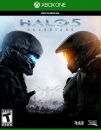
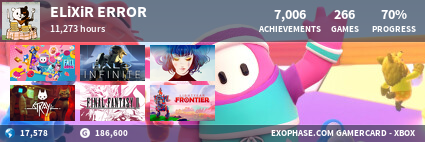




 after playing the tech preview though, I’ve got very high hopes for this game!
after playing the tech preview though, I’ve got very high hopes for this game! 






